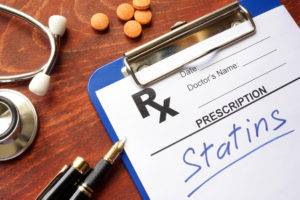 There’s little question that statins can help control cholesterol. But that can come at a price. Yes, they can reduce heart attack and stroke risk, but they may also come with some unwanted side effects.
There’s little question that statins can help control cholesterol. But that can come at a price. Yes, they can reduce heart attack and stroke risk, but they may also come with some unwanted side effects.
Coenzyme Q10, or CoQ10, might help.
Advertisement
If you’ve noticed that you don’t have the strength and energy you had before taking statins, or that your muscles are sore for no apparent reason, you might be considering rolling the dice with alternative cholesterol-lowering measures.
You wouldn’t be alone. Estimates suggest up to 25 percent of patients quit statin treatment after six months because of the side effects.
Depending on your situation, that decision could put you at major risk for heart attack or stroke.
One way to reduce muscle weakness, fatigue, and soreness is to make sure they have more energy. Increasing nutrient absorption, boosting metabolism, and fighting off inflammation are all ways to do that.
Which is precisely why CoQ10 could help reduce the side effects of statins.
CoQ10 is a fat-soluble vitamin-like substance found in every cell in your body. It helps convert food into energy and plays a major role in cell metabolism. It is also a powerful antioxidant that helps cells stand up to damage.
The more you have in your muscles, the more resilient they are likely to be.
Advertisement
A 2014 randomized clinical study found that 75 percent of statin users with muscle symptoms reported less pain after taking a CoQ10 supplement twice a day for 30 days. A placebo group reported no changes in pain.
Supplementing statins with CoQ10 may encourage treatment adherence by alleviating statin side effects. If you experience weakness or muscle pain, this could be the help you need.
Because of potential complications, you always want to talk to your doctor before beginning a new supplement regimen. It may require changes to current medication dosing or types.
